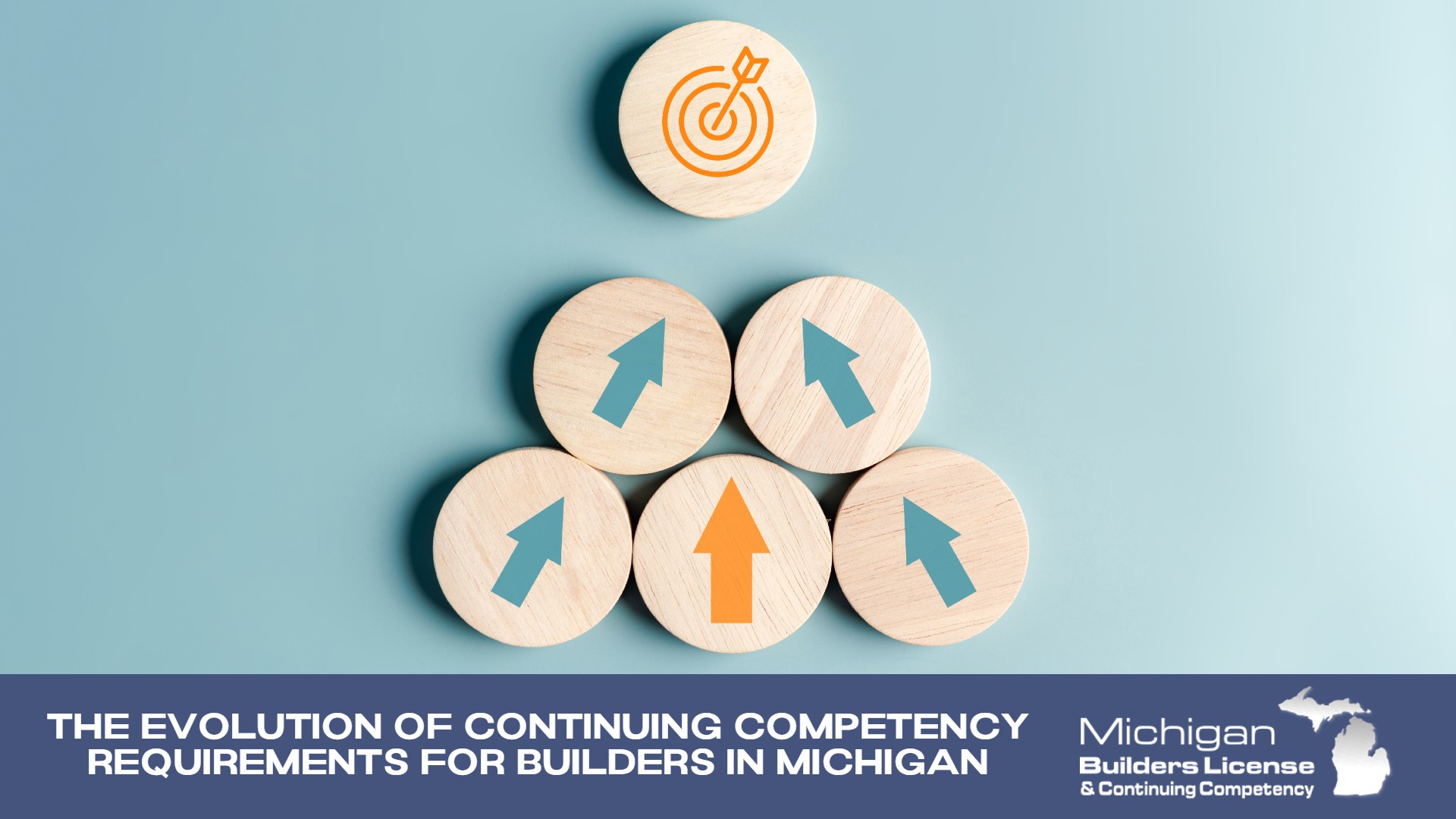In Michigan, the construction industry is vital to the state's economy and infrastructure. Ensuring that builders maintain up-to-date knowledge and skills is crucial for the safety and quality of construction projects. Over time, Michigan has implemented continuing competency requirements for builders to uphold professional standards and adapt to evolving industry practices.
Early Licensing and Training
The regulation of builders in Michigan began with the enactment of the Michigan Occupational Code, Act 299 of 1980. This legislation established licensing requirements for residential builders and maintenance and alteration contractors, including the completion of a prelicensure course of study and passing an examination.
Initially, once licensed, builders were not required to pursue further education to maintain their licenses. However, as construction techniques, materials, and safety protocols advanced, the need for ongoing education became apparent.
Introduction of Continuing Competency Requirements
Recognizing the importance of ongoing professional development, Michigan introduced continuing competency requirements for builders. According to Section 339.2404b of the Michigan Occupational Code, effective June 1, 2008, licensed residential builders and maintenance and alteration contractors are required to complete specific continuing competency activities during each license cycle.
Requirements Based on Licensure Date
Licensed before January 1, 2009:
Builders must complete a total of 3 hours of continuing competency activities every 3 years, including:
- 1-hour covering building codes and laws related to the licensed occupation
- 1-hour covering safety
- 1-hour covering changes in construction and business management laws
- Licensed on or after January 1, 2009: For the first 6 years (two 3-year license cycles), builders are required to complete 21 hours of continuing competency activities every 3 years, including:
- 1-hour covering building codes and laws related to the licensed occupation
- 1-hour covering safety
- 1-hour covering changes in construction and business management laws
- 18 hours of other relevant topics. Courses and activities must be relevant to the licensed occupation and may include any of
the following:
- Business management, estimating, and job costing
- Design and building science
- Contracts, liability, and risk management
- Marketing and sales
- Project management and scheduling
- Carpentry; concrete; swimming pool installation; waterproofing a basement; excavation; insulation work; masonry work; painting and decorating; roofmg; siding and gutters; screen or storm sash insulation; tile and marble work; or house wrecking
- Accounting and safekeeping for monies received from a customer, including the requirements of a building contract fund (MCL 570.151)
- Accounting, finance, and taxes
- Personnel management
- Communication and customer service
- Environmental or land use analysis
- Life Safety
- "Green" building
- Zoning and governance policies and procedures
- Mold, lead, asbestos, or other hazardous material mitigation
After the initial 6 years, the requirement decreases to 3 hours every 3 years, similar to those licensed before 2009.
Approved Continuing Competency Activities
To fulfill these requirements, builders can engage in various approved activities, such as:
-
- Teaching or completing approved prelicensure courses
- Participating in Bureau of Construction Codes update courses
- Attending MIOSHA safety courses
- Completing college courses relevant to the field
- Publishing articles in trade journals
- Participating in occupational or technical societies
- Attending state Residential Builders' and Maintenance & Alteration Contractors' Board meetings
- Participating in code hearings conducted by the International Code Council or Bureau of Construction Codes
- Engaging in research with academic institutions, trade associations, or manufacturers
These activities ensure that builders remain informed about industry developments and maintain high professional standards.
Legislative Updates and Current Practices
The Michigan Legislature has periodically updated the Occupational Code to reflect the evolving needs of the construction industry. These updates aim to enhance the quality and safety of construction projects across the state.
Currently, the Department of Licensing and Regulatory Affairs (LARA) oversees the implementation of continuing competency requirements. Builders are encouraged to complete their continuing competency courses promptly, as operating without a valid license can result in fines, penalties, and injunctions.
Michigan Builders License Continuing Competency
Conclusion
The evolution of continuing competency requirements for builders in Michigan underscores the state's commitment to ensuring that construction professionals remain knowledgeable and skilled. By mandating ongoing education, Michigan aims to uphold the safety, quality, and integrity of its construction industry, ultimately benefiting both professionals and the public.




